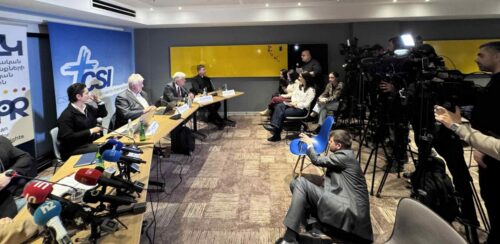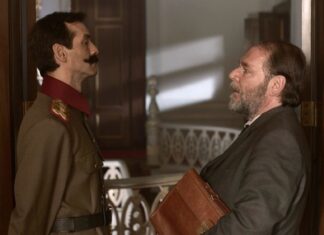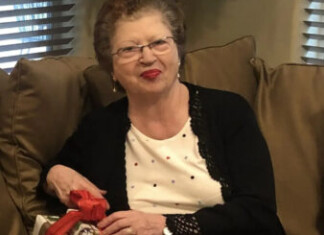GLENDALE, Calif. — The film “Vigen, Berlin and the Cold War” was screened on Sunday, November 3, at Laemmle Theatre here, followed by a question-and-answer session with its director and coproducer, Aviva Barkhourdarian.
“Vigen, Berlin and the Cold War” is an animated work based on the life of Barkhourdarian’s father, who moved to Berlin in 1962 from Iran. Barkhourdarian calls it an essay film, not a documentary, because she is in the film, and many parts of it are based on her memory, like a memoir, in addition to historical references.
In Berlin, where he moved, Vigen was able to travel from West Berlin to East Berlin and vice versa, because of his Iranian passport, something the German residents of the divided city were not allowed to do. The Berlin Wall, built in 1961 by East Germany’s government, included guard towers along the large concrete walls. The wall was demolished on November 9, 1989. During the years of its existence, some thousand Germans escaped from the East side, and almost 200 were shot attempting to leave. The opportunity to cross the Iron Curtain influenced Vigen’s life.
The idea for “Vigen, Berlin and the Cold War” started as a personal film for relatives, but it expanded to include background stories of German, Iranian, and Armenian cultures. Vigen’s apartment served as a hub for Armenian and Iranian immigrants, fostering political discussions and community. They had many political discussions and craved to be around familiar faces, and eventually founded an Armenian club.

Vigen supported the human rights movements and was against the Shah’s regime.
“After the screenings, viewers often come up to me and say, ‘you’ve made a movie of our lives,’” Barkhourdarian said after the screening. “Vigen’s life was unique, and at the same time, many immigrants experienced similar stories.” In her pamphlet, she wrote, “It was important to me to tell Vigen’s stories, to give a different perspective on this piece of contemporary history.”








